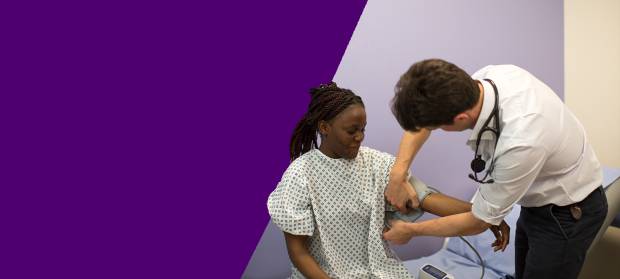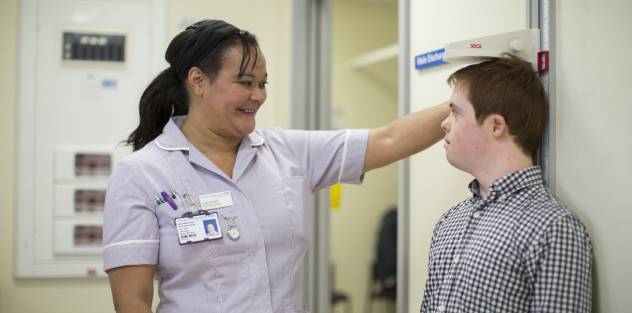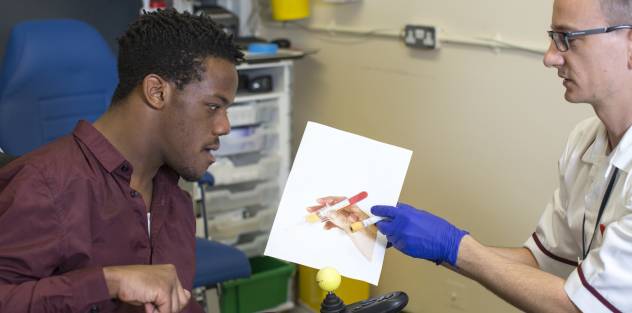What is a Summary Care Record?
Everyone registered with the doctor will already have a
Summary Care Record
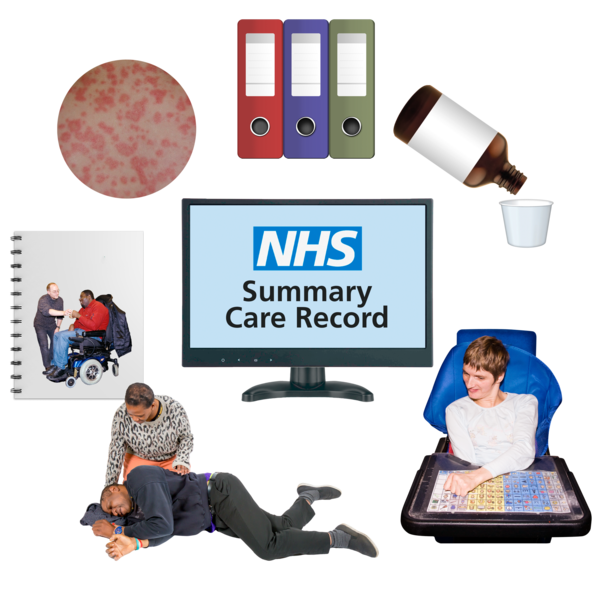 Most people have a Summary Care Record. It is a bit of information about your health on the computer at the doctor’s and at the hospital.
(SCR), unless they have previously chosen not to have one. An SCR includes important information about a person’s health, and will include:
Most people have a Summary Care Record. It is a bit of information about your health on the computer at the doctor’s and at the hospital.
(SCR), unless they have previously chosen not to have one. An SCR includes important information about a person’s health, and will include:
GP details
NHS number
Health conditions
Medications
Allergies
Why is it important?
This record is important, because there may be instances when people are not treated by a doctor or nurse who knows them.
What does additional information mean?
People with a
learning disability
 A learning disability is to do with the way someone's brain works. It makes it harder for someone to learn, understand or do things.
can choose to have additional information included in their SCR that will help them get better care and reasonable adjustments. This information includes:
A learning disability is to do with the way someone's brain works. It makes it harder for someone to learn, understand or do things.
can choose to have additional information included in their SCR that will help them get better care and reasonable adjustments. This information includes:
- illnesses and health problems
- previous operations and vaccinations
- how the person would like to be treated – such as where they would prefer to receive care
- what type of support they might need
- who should be contacted for more information about the person
If someone is ill and goes to hospital, staff can look at this record on a computer to find out more about the person. The SCR can help medical staff to avoid mistakes and make better and safer decisions about treatment.
The additional information will appear their Summary Care Record so that other medical services can see the person’s support needs. The person should then receive the same help and reasonable adjustments in other services (such as hospitals or allied care) as they get at their doctor’s surgery.
If someone is admitted in an emergency, they might be alone or confused, so having an accurate record can be vital to help staff take the best action.
How do I support someone to share their information?
All people must give their
consent
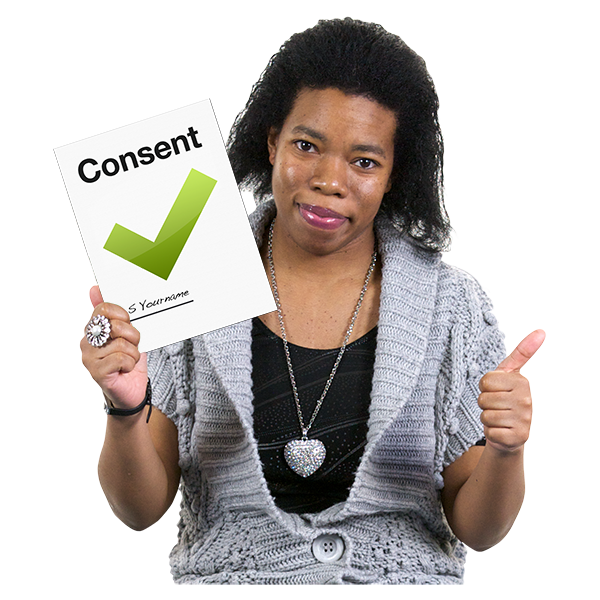 Consent is when you say yes to something, like an operation, or Mencap using your photo for a story. You may have to sign something to say yes. If you can't make your own decisions, someone else can say yes or no for you. They must think about what is right for you.
to put additional information on their Summary Care Record. It is important to explain to people with a learning disability why this is important, what can be shared, and how this might help them get better healthcare. Their doctor can show the person what is currently on their record and discuss what they are happy to share.
Consent is when you say yes to something, like an operation, or Mencap using your photo for a story. You may have to sign something to say yes. If you can't make your own decisions, someone else can say yes or no for you. They must think about what is right for you.
to put additional information on their Summary Care Record. It is important to explain to people with a learning disability why this is important, what can be shared, and how this might help them get better healthcare. Their doctor can show the person what is currently on their record and discuss what they are happy to share.
What if the person does not have the capacity to give consent to share their information?
People with a learning disability should always be supported to make their own decisions if they can. This might mean being given information in a format that they can understand, such as
easy read
 Easy Read is a way of making written information easier to understand. Pictures are usually added next to the writing.
, or having something explained in a different way.
Easy Read is a way of making written information easier to understand. Pictures are usually added next to the writing.
, or having something explained in a different way.
If, after all steps have been taken to support someone to make their own decision, the person is assessed as lacking capacity to make that particular decision, then a ‘best interests’ decision must be made.
The person who makes the ‘best interests’ decision is called the ‘decision maker.’ Who the decision maker is will depend on the situation and the type of decision. In this instance, there is a
Mental Capacity
 Mental capacity means being able to make a decision when it needs to be made.
Act (MCA) based best interest process where capacity for consent is lacking. A health professional may be able to make a best interests decision, in collaboration with the individual and carers to share information on the SCR.
Mental capacity means being able to make a decision when it needs to be made.
Act (MCA) based best interest process where capacity for consent is lacking. A health professional may be able to make a best interests decision, in collaboration with the individual and carers to share information on the SCR.
It is important to involve the individual as much as possible, to get a good understanding and therefore make the best decision for them. For more information about what steps you can take to assess capacity and provide support for decision-making, visit our webpage on the mental capacity act.
